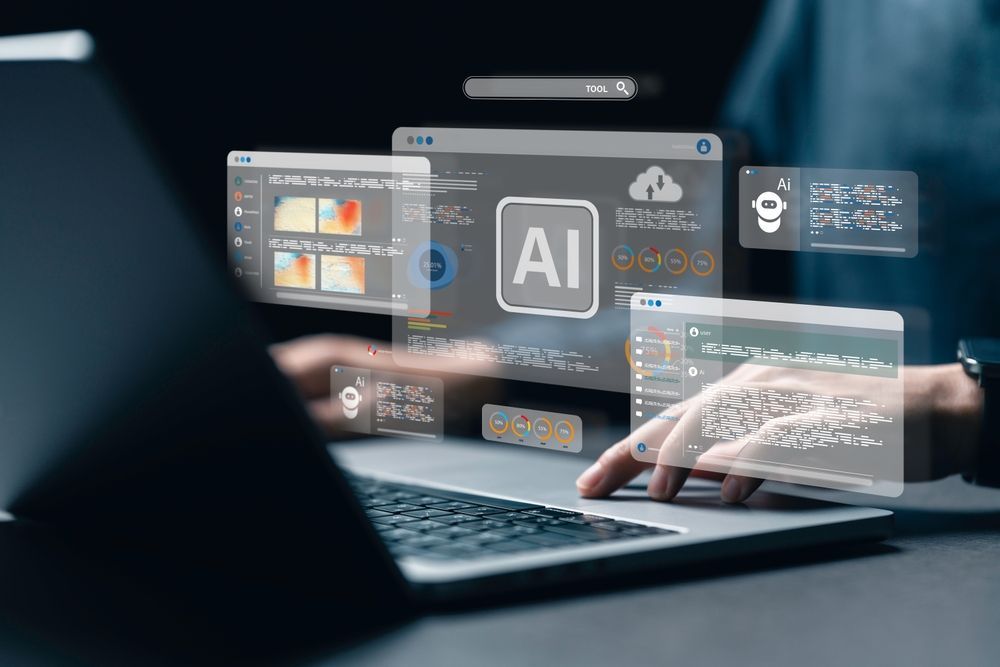Technology Tools Every Franchise Owner Should Consider in late 2025
How smart tech investments are reshaping the future of franchising

Technology is no longer a background player in the franchise industry—it’s front and center. At The Great American Franchise Expo (TGAFE), one of the most common conversations we hear between franchisors and franchisees is about technology. Which tools are worth the investment? Which innovations are shaping consumer expectations? And how can franchises keep up with an ever-accelerating digital landscape?
In late 2025, technology is evolving at a pace that directly impacts how franchises operate, market themselves, and serve their customers. From AI-driven personalization to data analytics dashboards and mobile-first experiences, tech has become the backbone of both growth and customer satisfaction.
The challenge for franchise owners is no longer whether to adopt technology, but which technologies to prioritize. With limited budgets and competing needs, owners must be strategic—choosing tools that deliver real ROI, streamline operations, and keep the brand relevant in a competitive marketplace.
In this article, we’ll dive into the top technology tools every franchise owner should consider in late 2025. We’ll cover areas ranging from customer engagement and operations to marketing and employee training—helping you understand not just what’s out there, but how it can shape your success.
1. AI-Powered Customer Engagement Tools
Artificial Intelligence (AI) has moved from buzzword to business necessity. Consumers now expect quick responses, personalized recommendations, and seamless interactions. For franchises, AI-powered tools are delivering on all fronts.
Why It Matters
- Speed: Chatbots and AI assistants provide instant responses to customer inquiries, reducing wait times and improving satisfaction.
- Personalization: AI analyzes customer data to make tailored recommendations, whether for menu items, products, or fitness programs.
- Scalability: These tools allow franchises to serve thousands of customers without straining staff.
Examples in Action
- QSR franchises using AI-driven kiosks that upsell based on order history.
- Fitness franchises providing customized workout plans through AI-powered apps.
- Retail franchises using AI to predict purchasing patterns and optimize inventory.
Takeaway: AI isn’t about replacing human interaction—it’s about enhancing it. Franchises that deploy AI thoughtfully can deliver experiences that feel both personal and efficient.
2. Cloud-Based Operations Platforms
Franchise systems can be complex, with multiple locations, teams, and moving parts. Cloud-based platforms bring everything together into one accessible hub.
Key Features
- Centralized dashboards for sales, inventory, and employee performance.
- Real-time data sharing between franchisors and franchisees.
- Integration with accounting, HR, and customer relationship management (CRM) systems.
Benefits
- Consistency: Franchisors can ensure brand standards are upheld across all locations.
- Efficiency: Franchisees save time by automating scheduling, payroll, and reporting.
- Scalability: Cloud systems grow with the business, making expansion smoother.
Takeaway: In late 2025, cloud platforms are essential for creating transparency and alignment across franchise networks.
3. Digital Marketing Automation
Marketing has always been critical to franchising, but digital platforms have completely transformed the playing field. Customers now expect brands to meet them where they are—online.
Why Automation Is a Game-Changer
- Streamlines social media posting and email campaigns.
- Uses data to target ads with pinpoint accuracy.
- Personalizes offers based on customer behavior.
Real-World Impact
- A restaurant franchise sending push notifications with daily specials.
- A salon franchise automatically emailing customers with appointment reminders.
- A tutoring franchise targeting parents with personalized ads when school breaks approach.
Takeaway: Marketing automation saves time while creating deeper connections with customers—a must for franchises juggling multiple locations.
4. Mobile Apps for Customer Loyalty and Convenience
Mobile has become the primary way customers engage with franchises. Loyalty apps, ordering systems, and scheduling platforms are no longer nice-to-have—they’re expected.
Customer Expectations in 2025
- Order ahead and pay via app.
- Earn and redeem loyalty rewards.
- Receive personalized deals and offers.
Benefits for Franchise Owners
- Builds repeat business by rewarding loyalty.
- Provides valuable data on customer behavior.
- Reduces friction in the customer journey.
Takeaway: A strong mobile app strategy not only improves customer retention but also provides insights that drive smarter business decisions.
5. Data Analytics and Business Intelligence Tools
Data is often called “the new oil”—but only if you know how to use it. Analytics tools help franchises turn raw data into actionable insights.
What These Tools Provide
- Sales performance tracking by location.
- Customer demographics and purchasing trends.
- Predictive analytics for demand forecasting.
Use Cases
- A retail franchise adjusting inventory based on seasonal buying patterns.
- A fitness franchise identifying which classes drive the most retention.
- A QSR franchise testing menu items and analyzing performance in real time.
Takeaway: Informed decision-making separates thriving franchises from struggling ones. Analytics tools put actionable intelligence at your fingertips.
6. Employee Training and Onboarding Platforms
Consistency is one of franchising’s greatest strengths—but it only works if every employee is trained to deliver on the brand promise.
The Tech Solution
- Online learning platforms with video modules and quizzes.
- Mobile-accessible training for on-the-go staff.
- AI tools that adapt training programs based on employee progress.
Why It Matters
- Reduces onboarding time.
- Ensures brand standards are upheld.
- Improves employee retention by offering career development.
Takeaway: Well-trained employees aren’t just more efficient—they’re brand ambassadors. Digital training tools make sure everyone delivers a consistent customer experience.
7. Cybersecurity and Data Protection Tools
As franchises collect more customer data, protecting it becomes a top priority. A single breach can damage customer trust and brand reputation.
Essential Tools
- Endpoint protection and firewalls.
- Secure payment processing platforms.
- Compliance management systems for data privacy regulations.
Why Franchises Need It
- Consumers expect transparency and safety with their personal information.
- Regulators impose strict penalties for data breaches.
- Strong security builds trust and credibility.
Takeaway: Cybersecurity is no longer optional—it’s a fundamental part of protecting both the brand and the customer relationship.
8. Supply Chain Management Tools
In a global economy, supply chain disruptions can cripple a franchise. Technology tools help owners anticipate problems and maintain consistency.
Features to Look For
- Real-time inventory tracking.
- Automated ordering and supplier alerts.
- Predictive analytics for potential shortages.
Benefits
- Reduces waste and overstock.
- Ensures consistent product availability.
- Builds resilience against global disruptions.
Takeaway: In late 2025, franchises that master supply chain tech will outpace competitors struggling with delays and shortages.
9. Customer Feedback and Reputation Management Tools
Online reviews and ratings can make or break a business. Managing customer feedback proactively is critical.
Tools That Help
- Automated review requests after purchases.
- Sentiment analysis tools to identify customer concerns.
- Dashboards to track brand reputation across platforms.
Why It Matters
- Positive reviews build trust and drive traffic.
- Negative feedback, if addressed quickly, can turn into an opportunity.
- Consistent reputation management protects brand equity.
Takeaway: Every franchise location contributes to the brand’s reputation. Tech tools help ensure it’s a positive one.
10. Emerging Technologies to Watch
While the tools above are essential today, franchise owners should also keep an eye on what’s next.
Key Innovations on the Horizon
- Augmented Reality (AR): Virtual try-ons in retail, immersive dining menus, or fitness demonstrations.
- Blockchain: Transparent supply chains and secure transactions.
- IoT (Internet of Things): Smart appliances in QSRs, connected fitness equipment, or inventory-tracking sensors.
Takeaway: Staying curious about emerging tech ensures your franchise is ready for tomorrow’s consumer expectations.
Conclusion
As 2025 unfolds, technology continues to redefine the franchise industry. From AI-powered customer service to cloud-based operations and mobile loyalty apps, the tools available today are transforming how franchises attract, serve, and retain customers. At the same time, cybersecurity, analytics, and training platforms are ensuring that operations remain secure, consistent, and scalable.
For franchisors, this means building systems that embrace digital transformation while empowering franchisees to stay competitive. For franchisees, it means choosing brands and tools that simplify operations and create meaningful customer experiences.
The good news is that these tools aren’t abstract—they’re real, available, and being used by leading franchises today. And at The Great American Franchise Expo, you can see many of them in action, connect with experts, and explore which solutions align best with your business goals. By staying ahead of the technology curve, franchise owners position themselves not just to keep up with consumer expectations, but to lead the way in creating the franchise experiences of the future.










